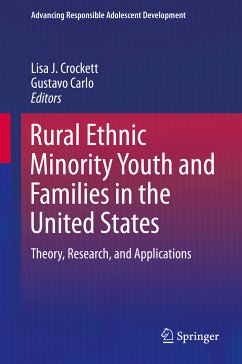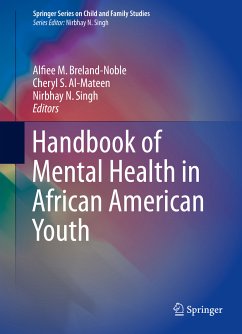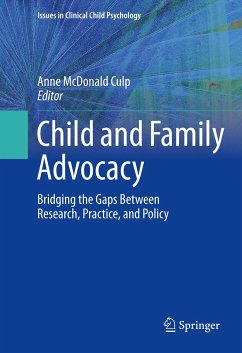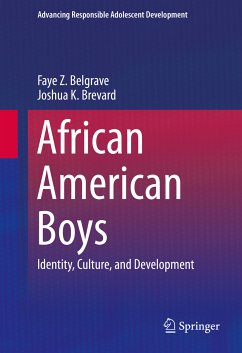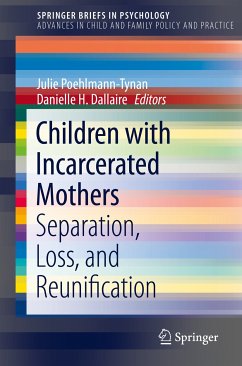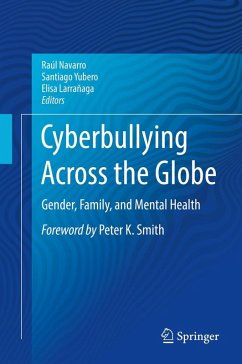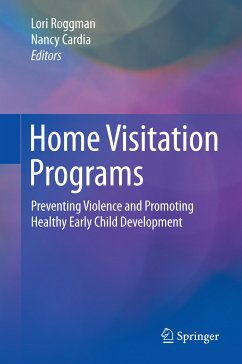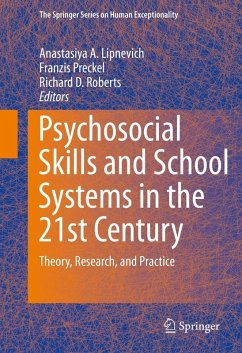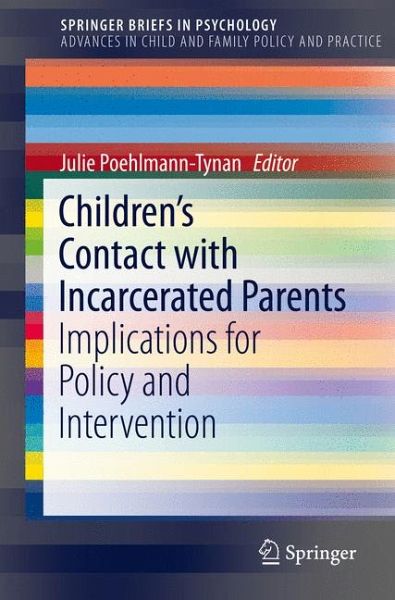
Children's Contact with Incarcerated Parents (eBook, PDF)
Implications for Policy and Intervention
Redaktion: Poehlmann-Tynan, Julie
Versandkostenfrei!
Sofort per Download lieferbar
44,95 €
inkl. MwSt.
Weitere Ausgaben:

PAYBACK Punkte
22 °P sammeln!
¿This Brief explores the potential effects of parent-child contact during incarceration on child and adult relationships, well-being, and parenting as well as corrections-related issues, such as institutional behavior and recidivism. It presents a literature review on what is currently known about parent-child contact during parental incarceration in addition to several empirical studies, followed by a summary, commentary, and briefing report. The empirical studies focus on contact in both jail and prison settings. Because jails in the United States handle more admissions per year than prison...
¿This Brief explores the potential effects of parent-child contact during incarceration on child and adult relationships, well-being, and parenting as well as corrections-related issues, such as institutional behavior and recidivism. It presents a literature review on what is currently known about parent-child contact during parental incarceration in addition to several empirical studies, followed by a summary, commentary, and briefing report. The empirical studies focus on contact in both jail and prison settings. Because jails in the United States handle more admissions per year than prisons - and studies of jailed parents and their children are not common in the literature - two of the three studies presented focus on jails. Following the empirical studies, a summary that includes recommendations for policy and intervention is presented, along with a commentary that explores what researchers need to do to make effective policy recommendations. This Brief is an essential resource for policy makers and related professionals, graduate students, and researchers in child and school psychology, family studies, public health, social work, law/criminal justice, and sociology.¿
Dieser Download kann aus rechtlichen Gründen nur mit Rechnungsadresse in A, B, BG, CY, CZ, D, DK, EW, E, FIN, F, GR, HR, H, IRL, I, LT, L, LR, M, NL, PL, P, R, S, SLO, SK ausgeliefert werden.



